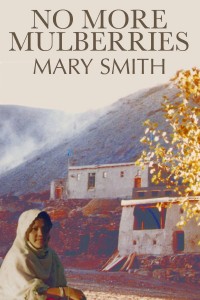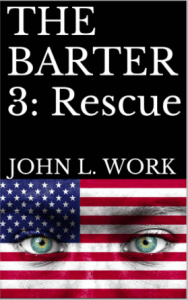
My books on Amazon Imbroglio | Automaton | Tapestries | 25 Writing Tips
I’ve just finished reading Mary Smith’s novel, NO MORE MULBERRIES, a story about a Scots woman who marries an Afghan chap and moves to Afghanistan in the 1980s. It was such a good read I immediately wanted to discuss it with Mary; she said Yes to an interview, so here we are.

Alana: Mary, welcome. I traditionally ask guests if they would talk a little about themselves first, before getting on to their books and writing. You were born in Scotland and apart from 10 years in Pakistan and Afghanistan you continue to live there, am I right? Would you describe where you live and tell us what keeps you there.
Mary: Thanks so much for inviting me, Alana. I’m delighted you enjoyed NO MORE MULBERRIES. I live in a small market town (pop about 4,000) in Dumfries & Galloway in the south west of Scotland. It’s a beautiful part of the country and although our hills are not as high as in the Highlands they provide a stunning backdrop to lush farmland, forests, and glorious beaches. It’s a magnet for artists and is a really vibrant, creative place to live with a strong sense of community.
Alana: The photos you provided certainly make me want to do a bit of wandering around there. I was watching Escape to the country a couple of weeks ago; it featured the area and mentioned a walk. So who knows! You work part-time as a journalist, what are the types of stories you encounter?

Threave Castle just outside my town. I often walk here and in the summer watch the osprey which nest near the castle.

Lochs, hills and winter trees on a walk not far from where I live

Part of the coastline where I like to walk
Mary: Over the years I’ve worked on a wide range of stories from local history, including articles on locals who became explorers or writers – what I call my dead famous series—to interviews with writers and artists living in the area. I’ve also written more hard-edged stories on the difficulties of our young people finding a house to buy or rent, heroin use, and domestic abuse.
Alana: It sounds like you’ll tackle anything.
Mary: I love the variety. My last three features were on a major research project into dying with the aim of ensuring everyone can have a ‘good’ death, an interview with the head of a local university, and a feature on a locally-based charity which works to open schools in Afghanistan.
Alana: Talking about Afghanistan … the 10 years you spent in Pakistan and Afghanistan, how did they come about?
Mary: Believe it or not initially I only went to Pakistan for a two-week holiday!
Alana: So you ended up staying?
Mary: No, that visit was just for the two weeks. While there I visited the headquarters of the leprosy programme which received funding from Oxfam, for whom I worked. I was impressed by the work being done towards controlling leprosy and wanted to contribute in some hands-on way. It was suggested I stay and start up a health education department. When I pointed out I didn’t have any medical qualifications they said that was okay, they would provide that.
Alana: But you didn’t stay?
Mary: No. I came home but couldn’t settle and eventually wrote an application letter for the post. I knew they had been going to advertise and expected other, better-qualified people would have applied. However, I received a letter asking me to come as soon as possible. I signed a contract for three years, handed in my notice at work and headed back to Pakistan.
Alana: What did you do there?
Mary: I set up the health education department to help raise awareness of leprosy and spread the word that it is curable. After three years I signed up again but this time to work in Afghanistan where I established a health project teaching Afghan women to become local health volunteers.
Alana: So you were in Afghanistan for seven years? Is Miriam’s daily life in the book drawn from your own experiences?
Mary: Yes and yes. And also from observing what life was like for women in the rural areas of Afghanistan.
Alana: What has stayed in your memory of your time there?
Mary: I miss the excitement of new experiences and the colour and the sunshine. The hospitality of the people—in both countries—is something I will never forget. The adventure of travelling in central Afghanistan through amazing landscapes, over high mountain passes on bone-jarring roads will always stay in my memory. And a few less happy events will not be forgotten either—being caught in a bombing raid, or the time I was tied up by armed robbers in our house in Mazar-i-Sharif. The good memories far outweigh the bad. Oh, goodness, so much has stayed in my memory from those years—enough to write another couple of books I should think!

Typical of where I stayed when running the health course for women – and also in which Miriam and Iqbal lived.

Band-i-Amir in central Afghanistan is a popular tourist spot with its series of lakes of the most incredible colours. The water is reputed to cure all kinds of illness. This is where Iqbal’s father took him in an attempt to cure his leprosy.

Afghan village

Typical Afghan landscape with the tortuous road leading to a village in the valley
Alana: How about a series? NO MORE MULBERRIES was a lot of things including entertaining and emotional, but for me it was a real insight into the lives of people, particularly women, there. I imagine it has struck many readers that way. I’d love to gain more insight.
Mary: Very often when watching something on television about Afghanistan or reading in a newspaper, or even a novel, I find myself shouting, “But life for Afghan women is not ALL like that!” I feel very strongly that Afghan women deserve so much more than always to be depicted as repressed, downtrodden creatures, unhappily married to violent husbands. For sure, in some cases, this is true just as it is true in every country including mine. I wanted to show there are other aspects to women’s lives like having fun, enjoying a laugh with friends or taking delight in their children. I’d already written a non-fiction book but thought perhaps a novel would attract a wider audience. I was also interested in exploring what kind of problems a western woman would encounter if she was married to an Afghan man and if their marriage could survive.

Alana: Tell us about your other published works.
Mary: As I mentioned above, I’ve also written a non-fiction book. DRUNK CHICKENS AND BURNT MACARONI: REAL STORIES OF AFGHAN WOMEN is a memoir of the last three years I spent in Afghanistan. It describes the work I was doing and introduces the reader to some of the women (and their families) with whom I worked. I wanted to share my experiences of living in Afghanistan and, as I couldn’t persuade people to come and visit, I thought at least by writing about it I could give people an opportunity to be part of that life for as long as it took them to read the book.
I have a collection of poetry called THOUSANDS PASS HERE EVERY DAY which includes some poems about Afghanistan but also about where I live now and about family and childhood. I’m slowly—very slowly—working towards another collection.
My most recently published book is something quite different. DUMFRIES THROUGH TIME is a picture-led local history book with a ‘then and now’ format. I worked with a photographer who took photos of the places for which we’d sourced old images.
Alana: And you have two blogs, My dad is a goldfish: caring for a demented dad and Take Five Authors —would you discuss the ideas behind them both?
Mary: My dad is a goldfish is about caring for my dad, who had dementia. He died in December 2014 and I thought of not continuing with the blog but decided to keep on, though I’m blogging retrospectively. I’ve met some bloggers in a similar situation; some caring for a parent, some for a spouse and it has been good to feel connected with others. I think we all appreciate knowing we’re not alone on this journey.
Take Five Authors is a blog I share with four other writers. Some are traditionally published, some indie, and we put a new post up each week. This means each of us only has to blog once every five weeks. We blog about all aspects of writing and reading from new publications to overcoming the fear of writing; from saving public libraries to running writing courses. It’s a new blog and we’d love to welcome new followers to it.
Alana: I understand you have several projects currently underway. Do any of them involve a new book?
Mary: I want to publish My dad is a goldfish as a book. I’ve just started the process and have realised it’s going to be a bit more complicated than I first thought as the structure has to be changed. I don’t want it just to be a series of blog posts like journal entries, so I need to create something a bit more cohesive. I would like to think I could have it done before the end of this year—it was one of my New Year resolutions.
Photographer Allan Devlin and I have been asked to do another local history book featuring a different town and we’re starting the search for old photos and postcards.
And in case I feel I don’t have enough to challenge me, the other day I found the original manuscript for a book about my first six-months in Afghanistan – the first book which never sees the light of day!
Alana: Ah yes, we all have those. I have three!
Mary: There is quite a lot of material I haven’t used in my other books so I’m thinking of doing a major edit and getting it out there.
Alana: Mary, thank you so much and all the best with your endeavours.
Mary: Thank you so much, Alana. I’ve enjoyed our discussion – hope I didn’t ramble on too much.
Alana: Not even a hint of rambling, Mary. Loved listening.
Take this link to my review of NO MORE MULBERRIES
Mary’s links: website | Amazon author page
Mary’s blogs: My dad is a goldfish | TakeFiveAuthors | eNovelAuthorsatWork
Mary on: Facebook | Twitter
Buy links
NO MORE MULBERRIES: Amazon US | Amazon UK
DRUNK CHICKENS AND BURNT MACARONI: Amazon US | Amazon UK
DUMFRIES THROUGH TIME: Amazon US | Amazon UK
THOUSANDS PASS HERE EVERY DAY: Amazon US | Amazon UK
Like this:
Like Loading...






















